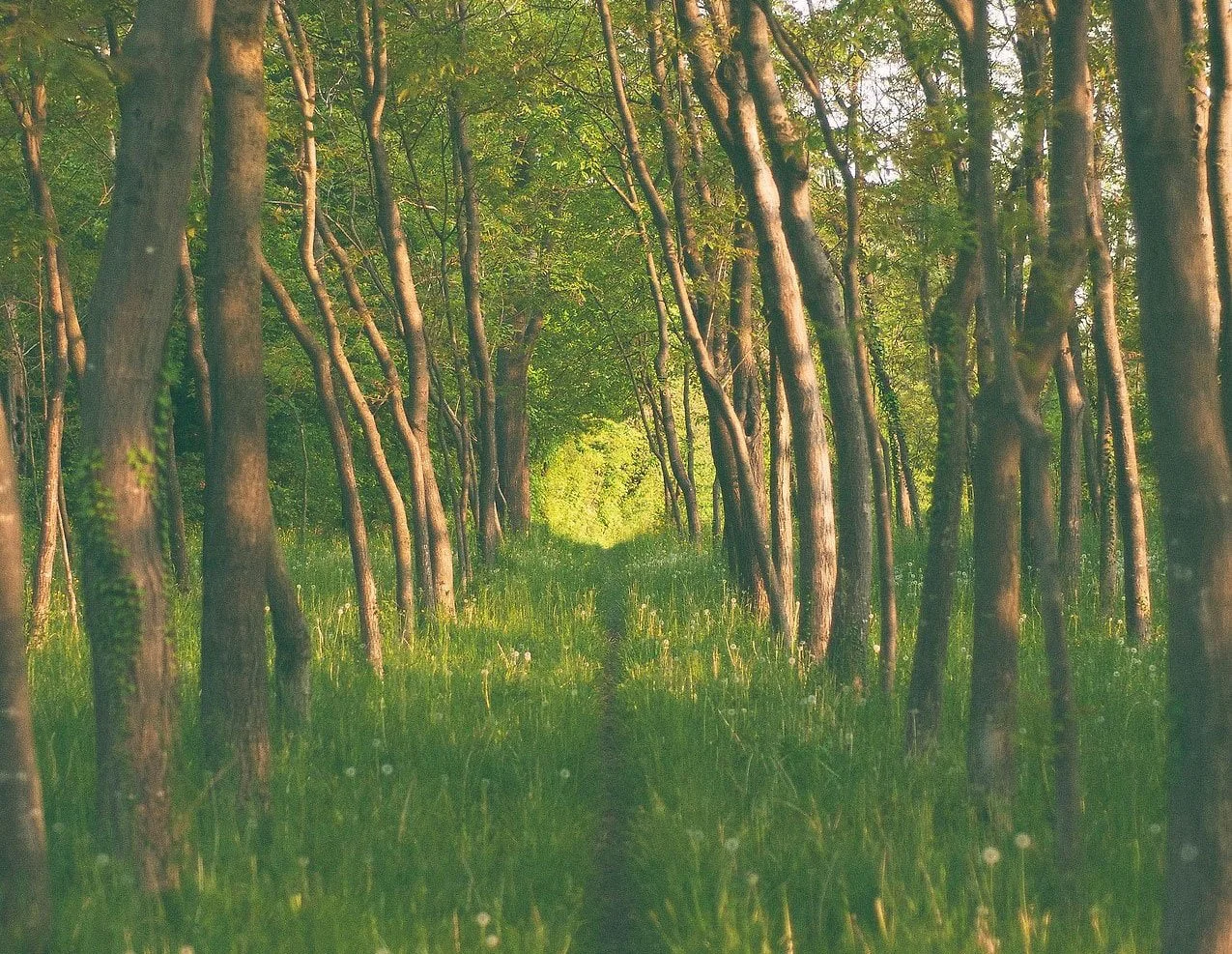We look at how the attention economy takes on a new meaning in the digital age and the anxiety we experience in a consumer-driven society. Jenny Odell shares the brilliance of doing “nothing”, tending to the ecological self, and growing deeper forms of attention through a commitment to bioregionalism.
Read Morejohn a. powell explores the frameworks of “othering and belonging” and "targeted universalism," as well as ideologies of supremacy, global dislocation, rethinking citizenship, and lastly, how we can co-create shared visions and practices of humanity that bring us back into belonging.
Read MoreArticulating both the harsh realities of modern day division and the simultaneous reality of our connection to each other and to the earth, Báyò and john examine what it means to be “other” and to invite in the “monstrous” and the “strange.”
Read MoreTyson calls us to unbrand our minds and deeply interrogate where we are sourcing our thoughts from, the ramifications of becoming a trauma-obsessed society, and how to identify environments for emergence.
Read MoreAyana and Morgan dive into the need for repair, healing, and acknowledgement as we face the historical roots of modern inequity. This heartfelt and expansive conversation calls for us to unlearn the ways racial capitalism has taught us wealth should be passed down.
Read MoreMalcolm offers well-rooted thought touching on the history of Stanford University, the internet, Palo Alto’s military connections, and reveals the values of understanding our material realities and the structures that support society as it stands.
Read MoreAlynda speaks on the complexities that come with wanting and needing to run away from oppressive systems while simultaneously confronting what is happening right in front of us, emphasizing the urgency of action and compassion as we work to end systems of detainment and punishment.
Read MoreJosué invites us to challenge extractive and colonial lenses by embracing the overwhelming force of the creative urge. How might we break apart from the constant pressure of social media to envision the new modes of creation and creativity that these stories need in order to be told?
Read MoreJarod (@cryptonaturalist) reminds us, limits are nourishing within poetry, and can be a virtue in life. If we accept the messy, twisted, and gnarled realities of life, we can escape the cold and dead store bought narratives about who we are supposed to be and instead lean into real freedom.
Read MorePart two of the conversation between brontë and Tiffany spans further inquiry into shoals, the physical desire to belong to Earth, agency, eros, spiritual correction, the pleasure and potential of failure, and that which cannot be translated, but instead has to be experienced or co-witnessed to be understood.
Read Morebrontë and Tiffany explore sacred laughter, Black and Indigenous feminism, sexuality, liberation, ceremony, and protocol. This simultaneously intimate and expansive dialogue allows us to rethink the stories and structures we’ve been told regarding Black and Indigenous relations.
Read MoreSophie invites us to embrace rot and decay, to welcome our demons to the dinner table, and to prepare for uncertain futures with tenderness. Sophie provides a route to overcome the death-trap that is self-righteousness, instead prioritizing humble complexity and surrender to relationality.
Read MoreIsmail guides listeners through an overview of where we are in our relationship with drugs in the American context, and how this relationship is indicative of our relationship with the Earth and with humanity broadly encouraging us to move beyond the black and white view that some drugs are medicine while others are criminal.
Read MoreLark shares about the relentless and direct activism Appalachians Against Pipelines has been doing to stop the pipeline, build community resistance, and advocate for the needs of their communities in the face of developers, oil and gas advocates, and a continued disregard for Appalachian voices.
Read MoreBrett shares how mass-incarceration and climate change are not crises of the individual, but of our culture. The abolitionist imagination may be the key to a collective future– as Brett reminds listeners that one can be both practical and utopian.
Read MoreBayo Akomolafe guides listeners on a journey to lose oneself and leave behind the ties that bind us to world views that do not serve humanity’s wholeness. Bayo challenges us to lean into the “political un-project” that is fugitivity, blurring societally-imposed binaries, in order to better understand the human territory and to make more-than-human sanctuary through post activism.
Read MoreDr. Carroll pushes back against dominant settler histories about Cherokee migrations and relations to homeland and provides insight into what audience members ought to glean from Indigenous philosophies imparting practices of deep reciprocity, responsibility, and relationship to the land and each other.
Read MoreAlexis elucidates that it is only through the messy process of owning up to these broken relations throughout time and seeing how we might participate in and take on culturally appropriate relations of repair, responsibility, friendship, and comradeship in the struggles for liberation that we can survive these times.
Read MoreDr. Osorio guides us into a fuller understanding of aloha by returning the commodified phrase to the more extensive understanding of aloha ‘āina, wherein the possibilities for other worlds are not only born but remembered and recalled from the long history of sovereign Hawai’i and traditional Hawaiian teachings and lifeways.
Read MoreCovering the neuroscience of trauma, the habit of racism, and various typologies of systemic trauma, Dr. Ward provides insight into how we might consciously choose to activate our neuroplasticity toward justice rather than collectively rewarding our neuroplasticity for violence and oppression.
Read More
![JENNY ODELL on the Attention Economy [ENCORE] /330](https://images.squarespace-cdn.com/content/v1/5403e5dbe4b04db10d1d362b/1613177561536-ESZPB4VVUGAD28GL533R/Jenny-Odell_For-The-Wild-Podcast_Episode.jpg)
![JOHN A. POWELL on Institutions of Othering and Radical Belonging [ENCORE] /329](https://images.squarespace-cdn.com/content/v1/5403e5dbe4b04db10d1d362b/1680558487214-Z7USGZCE4BZ2TOEQ0PX7/john.a.powell_For-The-Wild_Episode2.jpg)

![TYSON YUNKAPORTA on Unbranding Our Mind [ENCORE] /328](https://images.squarespace-cdn.com/content/v1/5403e5dbe4b04db10d1d362b/1679438620815-FQQCOGTM00WXBA9K5R4W/Tyson-Yunkaporta_For-The-WIld-Podcast_Episode1x1.jpg)





![TIFFANY LETHABO KING on The Black Shoals [with brontë velez], Part Two /316](https://images.squarespace-cdn.com/content/v1/5403e5dbe4b04db10d1d362b/1670886696027-B18TPEPB1F02GVOCNCRM/Tiffany-Lethabo-King_For-The-Wild_Episode2.jpg)
![TIFFANY LETHABO KING on The Black Shoals [with brontë velez], Part One /315](https://images.squarespace-cdn.com/content/v1/5403e5dbe4b04db10d1d362b/1670276370810-8C4398YL28P1N7EDZ8OG/Tiffany-Lethabo-King_For-The-Wild_Episode1.jpg)








